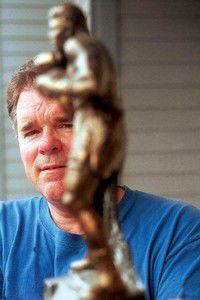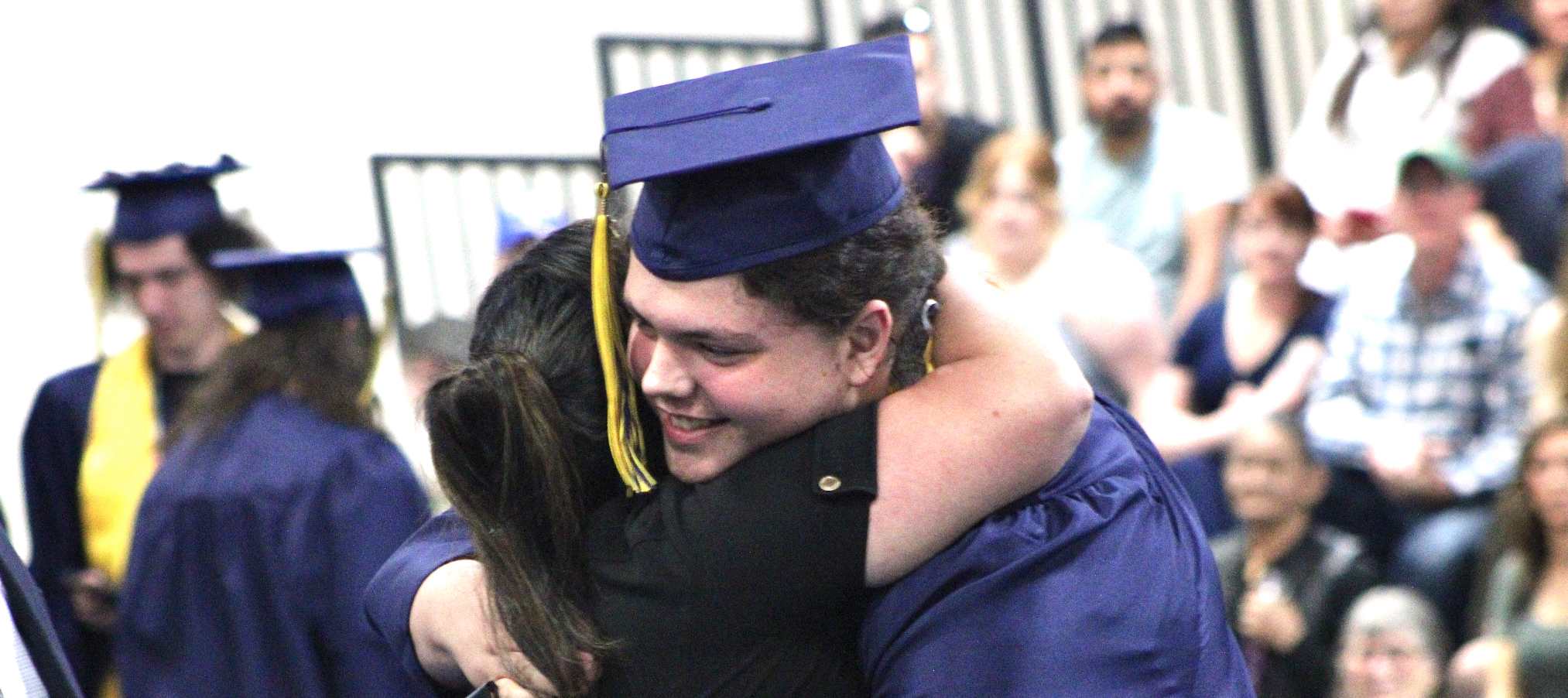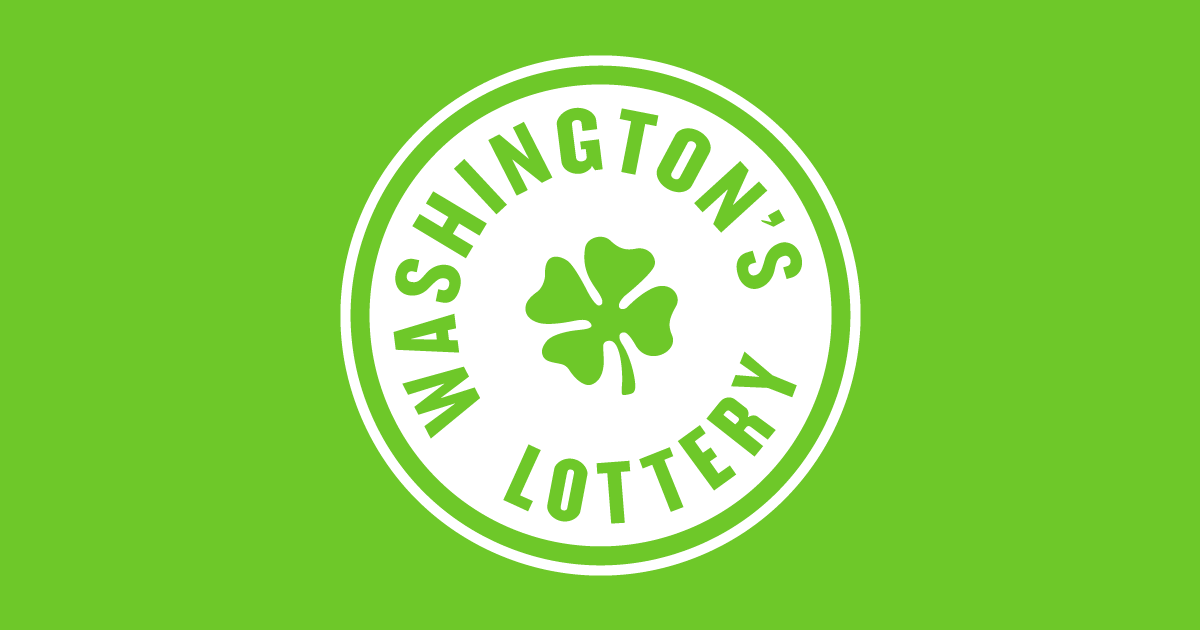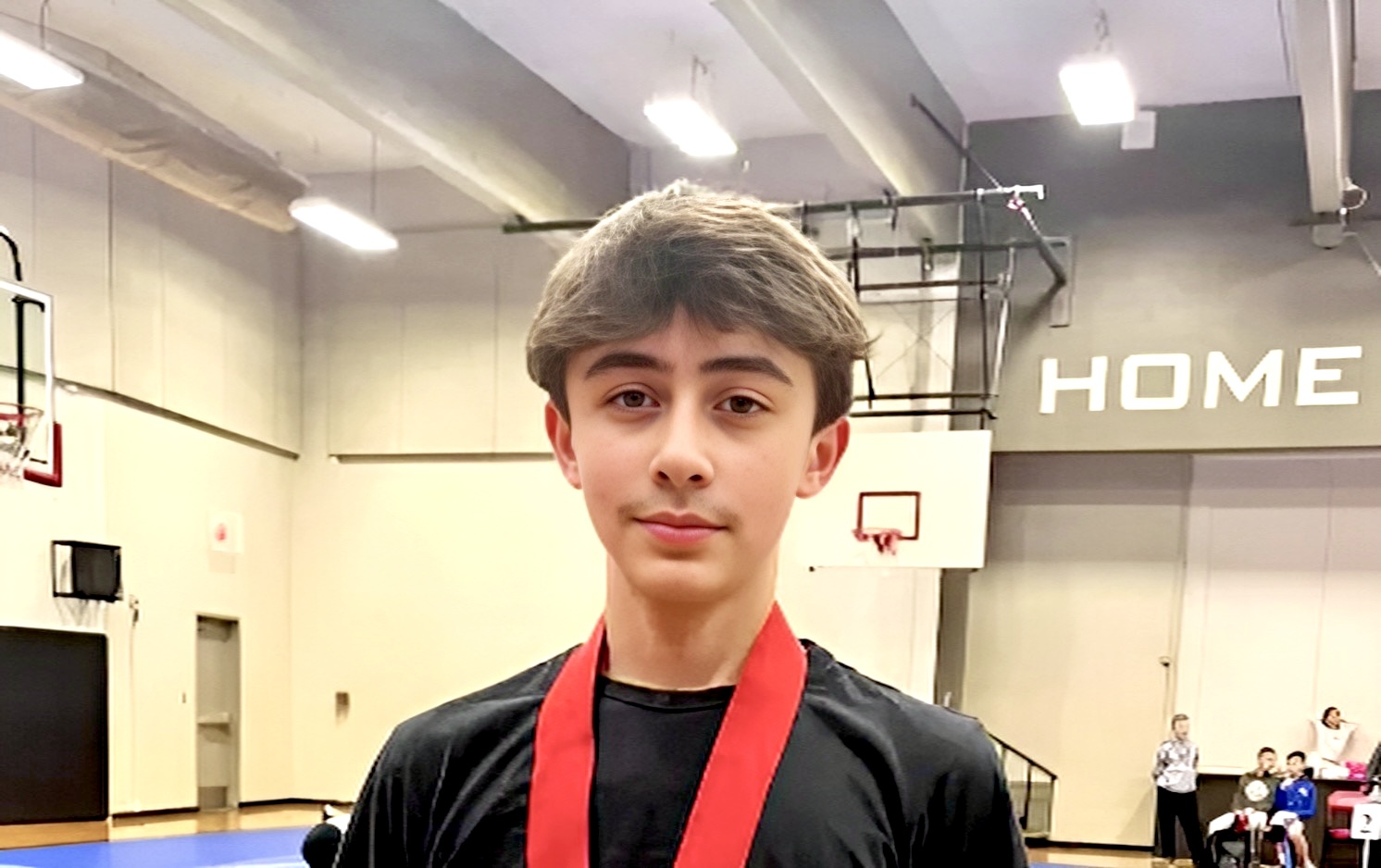Popcorn instead of punches for prizefighter Bud McKay
Published 5:00 pm Tuesday, July 15, 2003

- Local theater owner Bud McKay knew how to take and throw a punch as an award-winning fighter. DAMIAN MULINIX photo
LONG BEACH – The next time you think about starting trouble at the Neptune Theater, think again. You may end up with a right hook to the jaw for your trouble.
“I had a guy who had too much to drink and I tried to talk to him … and you don’t beat up your customers, but he hit me first,” reminisced Bud McKay, owner of the Neptune, of a situation he had to deal with once at a theater in his home state of Montana. “I was right in the middle of professional boxing at that time. I tried to tell that guy not to get me p@#@ed off … so anyways, that was fun.”
“Fun” is how McKay describes most of his life, especially when thinking back on his glory days as an amateur and professional boxer. McKay was 12 years old when he had his first fight.
“From 15 to 28, I never stopped,” he said. “I was 16 and beating a 28-year-old and thinking that these guys were too old to be boxing. Then down the road, I was the 28-year-old. It’s hard to quit once you get started.”
McKay boxed in 104 amateur fights, compiling a record of 74-30. After some time off due to injury in his early ’20s, McKay started boxing professionally, ending with a 4-2 record.
When McKay was contacted by a boxing promoter out of Spokane named Jack Rose in the mid-1970s, he agreed to fight professionally for $50 per round, and would regularly make $300 per fight.
“Six fights was enough for me,” said McKay of his short-lived professional career. “I got my jaw broke in my third fight, and I was undefeated, but I lost that one. It took me about year to recover form that, and I continued again because I wanted to show myself I could still take a punch.”
In what would turn out to be his final fight, McKay faced a boxer who had very little boxing experience was horribly overmatched by the far more savvy McKay.
“He just shouldn’t have been in there,” he said of the fight. “I stopped the match in the third round and I went back to the corner and my wife told me that, ‘There’ll be a day that they do that to you.’ And that’s all it took.”
McKay walked away from boxing, a sport that had dominated his life from a young age.
“It was hard to quit,” he said. “But I actually felt that it was time. It’s a rule of thumb that by 25, if you’re not on top of the professional world, you’re not going to be. When you’re 28, you better be on top.”
McKay grew up in Missoula, Mont., attending a Catholic grade school as a child. It was there that his interest for boxing first bloomed when he picked up the sport for self-defense purposes.
“There was a lot of kids there and I did get beat up one night,” he said, “and I went to my dad and he said, ‘Well why don’t you go down to the Elk’s club and learn how to box?'”
His father had been a boxer and became his coach in the early years. McKay said early on he knew that traditional athletics weren’t his thing.
“I couldn’t dribble a basketball because I never played basketball,” he said. “When I did go into boxing and found that I was quite good at it, it just became my cup of tea.”
Once he started attending Hellgate High School, his amateur career started to take off. Known as Buddy McKay at that time, he won his first state championship in 1967 as a featherweight. In 1968, ’69 and ’70 he won the Amateur Athletic Union [AAU] Senior State Championships. He also won the Golden Gloves for Midland Empire district, covering Montana and Idaho, those three years as well.
“It just became a part of my life,” he said. “I didn’t do any other sports. I went for wrestling in high school just to get into shape for boxing season.”
McKay still bares a scar from those years as well, a straight pink one below his lower lip.
“This is what I got in Seattle,” he said with a laugh. “I bit right through my mouth piece, right through my lip and got the hell kicked out of me from some kid from Portland.”
McKay remembers the name of that kid too, Abe Mankins. He said that he remembers the names of all the fighters who he lost to because there weren’t many.
McKay was part of the most popular amateur boxing team in the Missoula area. His team had many of the more older and experienced fighters, which led to success. In 1972 they were the best club in the state, with five state champions on the team. But McKay wasn’t on that team due to a fateful accident on a boat earlier that year. McKay cut his foot on an outboard motor when he was 21.
“And unfortunately, that was pretty much the end of my career.”
McKay missed two years of fighting due to the injury, which broke one toe and cut three others.
In the year prior to the accident, McKay had been teamed with a boxer named Sugar Ray Seals, a gold medalist in the 1972 Olympics.
“I was 139 [pounds] and he was 132, and we were going to go to the Olympics, you know. But that was the year that I got my foot cut, so I couldn’t fight that year. I’m not saying I would have been an Olympic contender, but when you’re crippled at 21 and you’ve won 13 years in a row … that was kind of disappointing.”
But once healed, it didn’t take long for McKay to find himself in the familiar surroundings of a boxing ring, winning the Golden Gloves again in 1976.
Boxing as an athletic and emotional outlet is important said McKay, who believes it can do a lot for one’s self confidence – but it is also important to have fun. In 1973 McKay lost his first state championship match, and he said it freed him in a way.
“After I lost that state championship it really became fun because I didn’t have the pressure of having to win all the time,” he said. “When you do good all the time there is pressure, believe me. So when I won the Golden Gloves in ’76, it was for fun.”
Toward the end of his professional career, McKay took a job managing a movie theater in Phoenix, Ariz. He had a good amount of experience in the field, having worked at the theater in Missoula for several years.
After deciding that he couldn’t take the heat of the desert, McKay moved in turns to movie theaters in Portland, Kent and Bellingham. He ended up purchasing a theater in Idaho in 1996. But after five years there, the economy of the area – which was dependent on mining – went south, forcing him to look elsewhere again. He looked, of all places, to the Long Beach Peninsula.
“I knew about this theater,” said McKay of the Neptune. “I was here for the grand opening. My old boss was the one who built this theater, and I just happened to pick up the book and it was for sale the day that the mines closed. It was just luck I guess.”
Today, McKay’s love of the sport is still burning inside.
“It was my life for so many years but it has gone on the shelf.”
And he means this literally. McKay has saved every newspaper clipping and several fight posters from his matches, all sealed in a notebook he keeps in a closet somewhere. Along with that is the reminder of his awards – a keepsake made for him by a friend – a bronzed trophy featuring a tall fighter in trunks and gloves, with his titles listed on the base.
But rather then step back into the ring at 50 to quell his desire, like former heavyweight champion George Foreman is considering, McKay plans to start holding club boxing matches at his theater starting this fall.
“I’ve got everything that I need to start a club here,” he said.
McKay said that club boxing has gained in popularity in the last several years and he is hoping to start holding weekly matches here. A portable ring would be set atop the seats of his theater and play host to amateur fighters.
“It’s semi-pro, the winners and losers both get paid,” he said. “It involves the local area, it’s all local fighters. It’s like a junior toughman contest.”
In looking back on his boxing days, though it was hard, McKay said he is happy that he quit when he did, having known other fighters who tried to continue their careers longer then they should have and ended up a lot worse for the wear.
“It’s called punch-drunk syndrome,” he said. “It’s definitely brain damage.”
And he isn’t sorry that he didn’t get further in his professional career, “I wasn’t in there to win world championships. I was in there for the money, and I enjoyed doing it.”
Boxing made McKay who he is. It made him happy. It made him money. It may have left him a few scars in return, but it gave him a passion that he continues to live with today.
“It’s always in my blood.”





